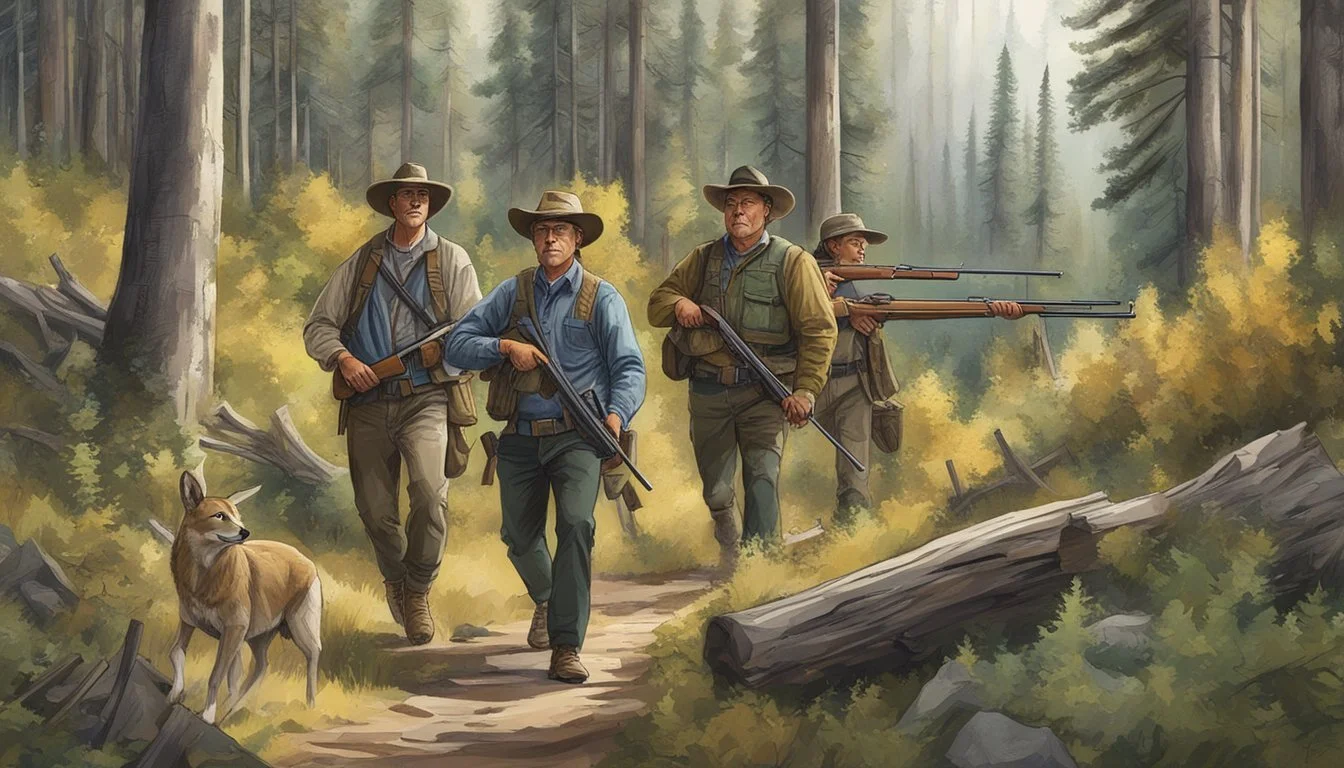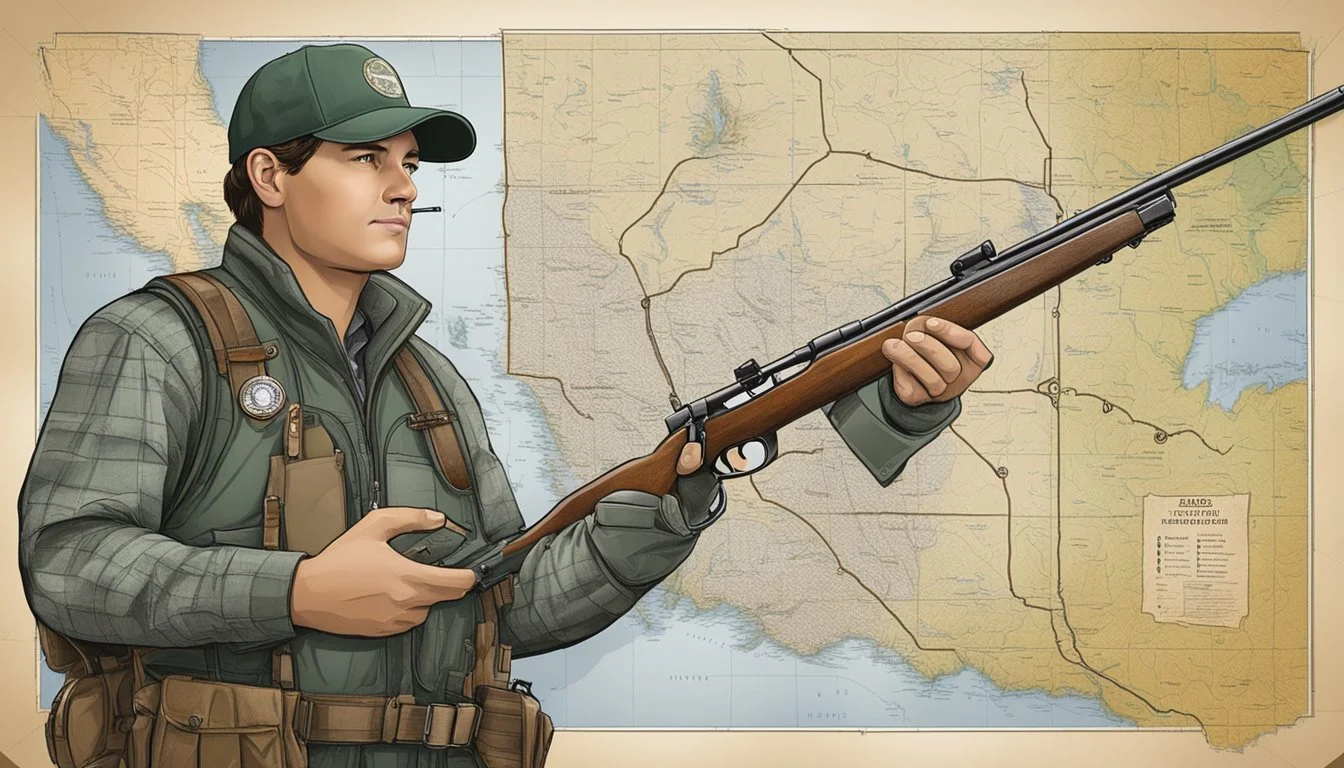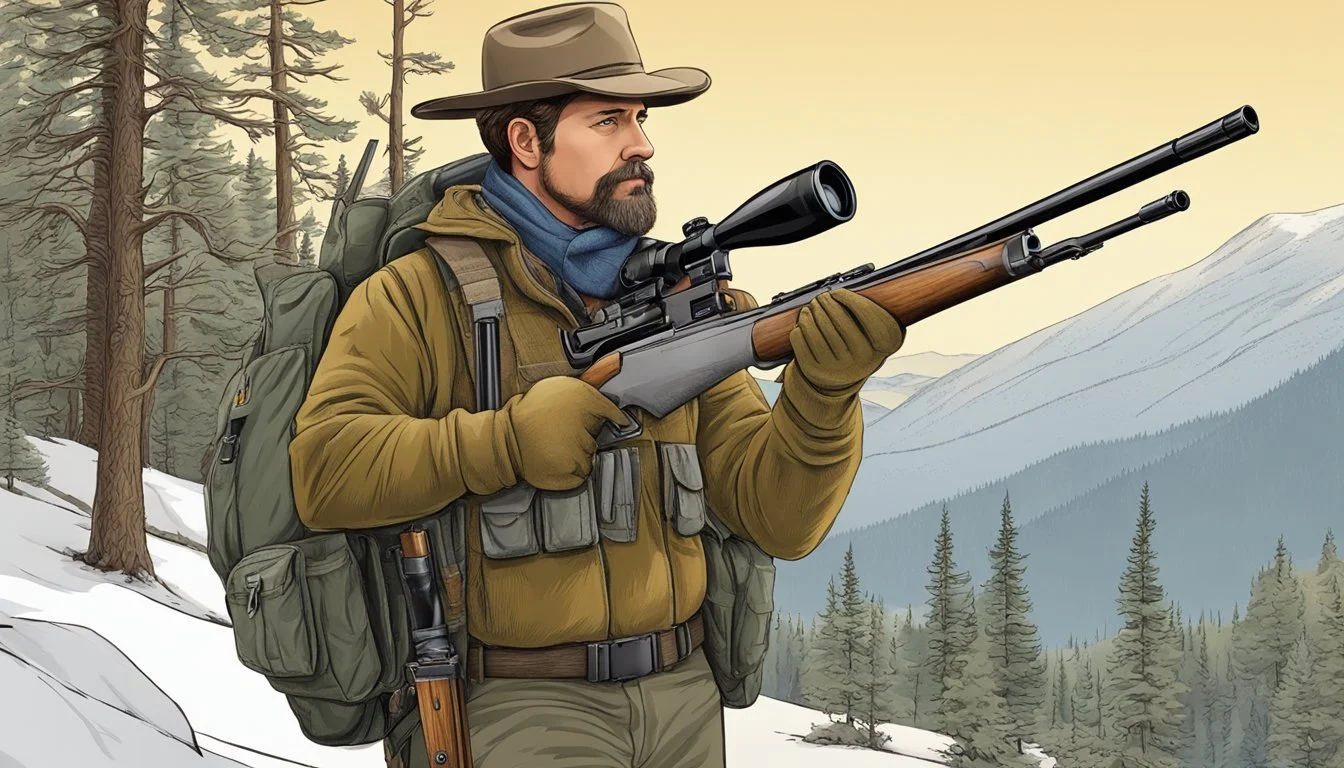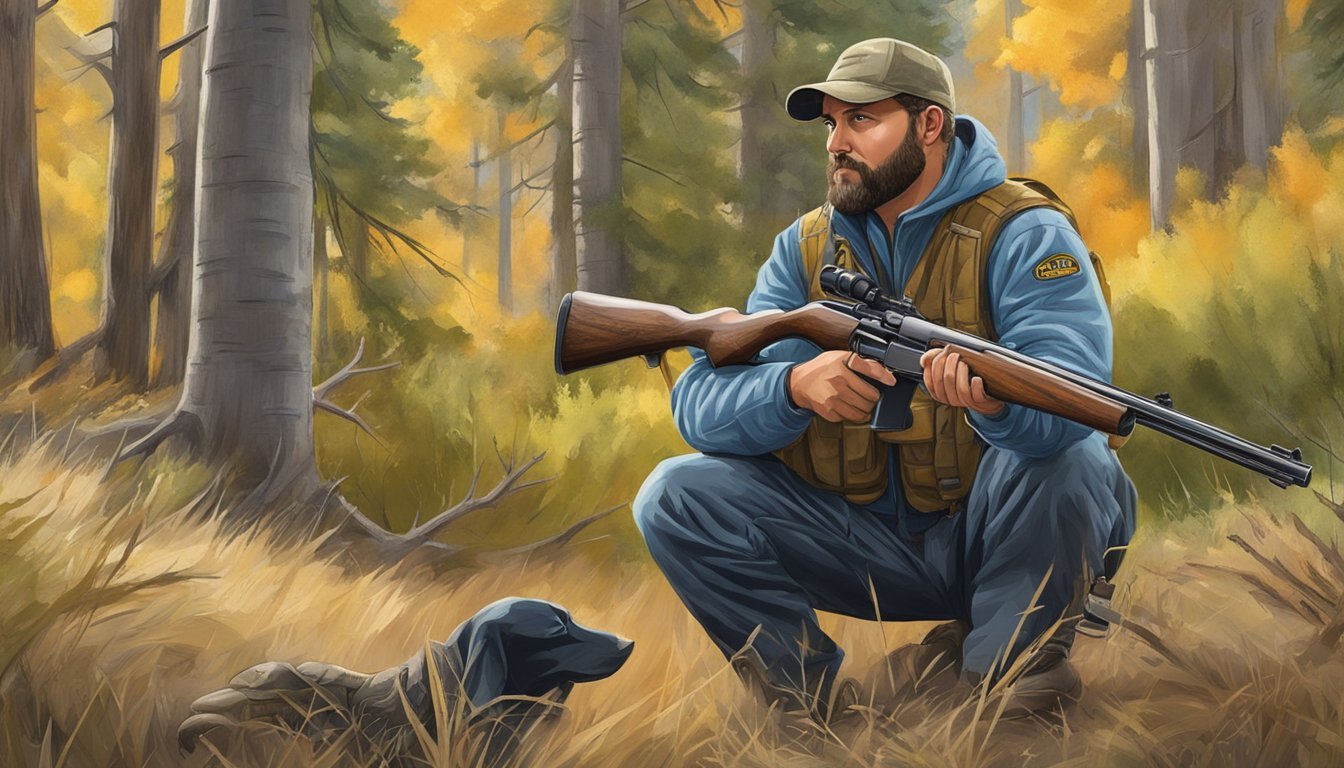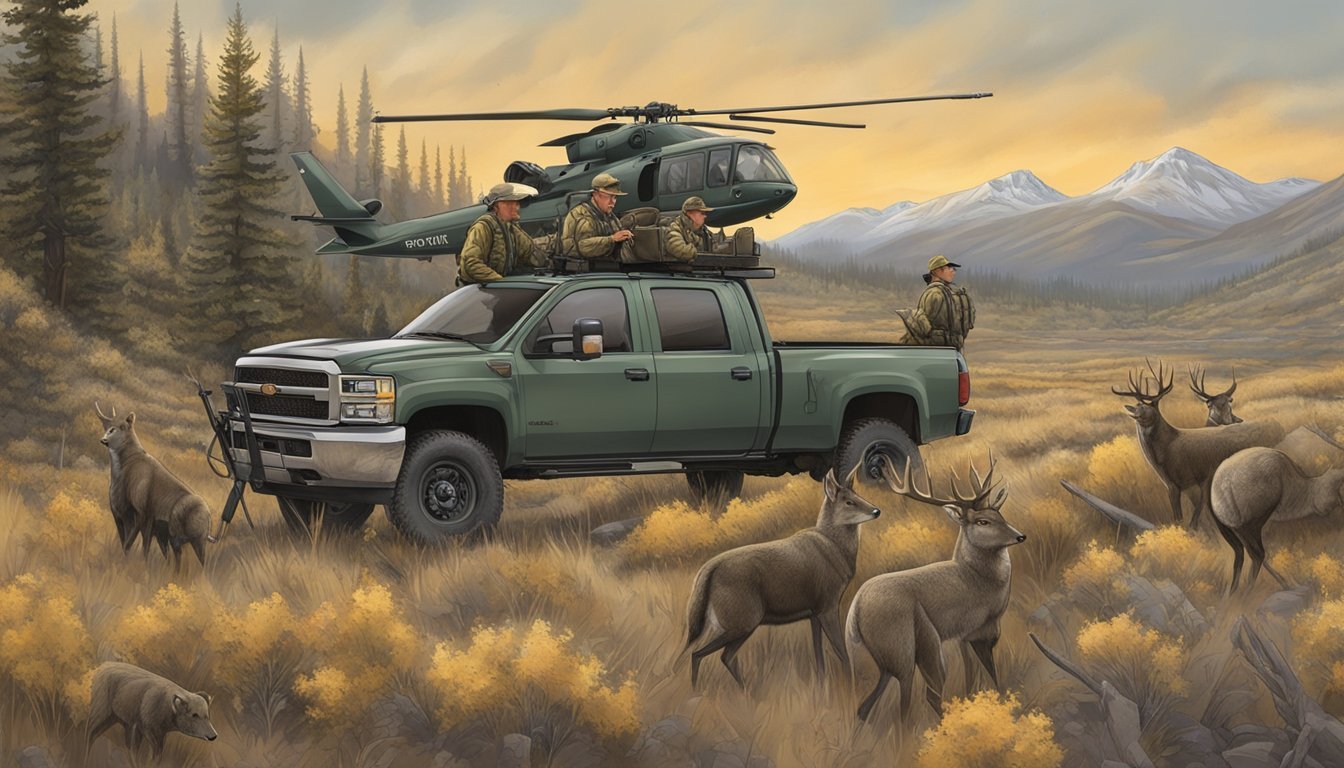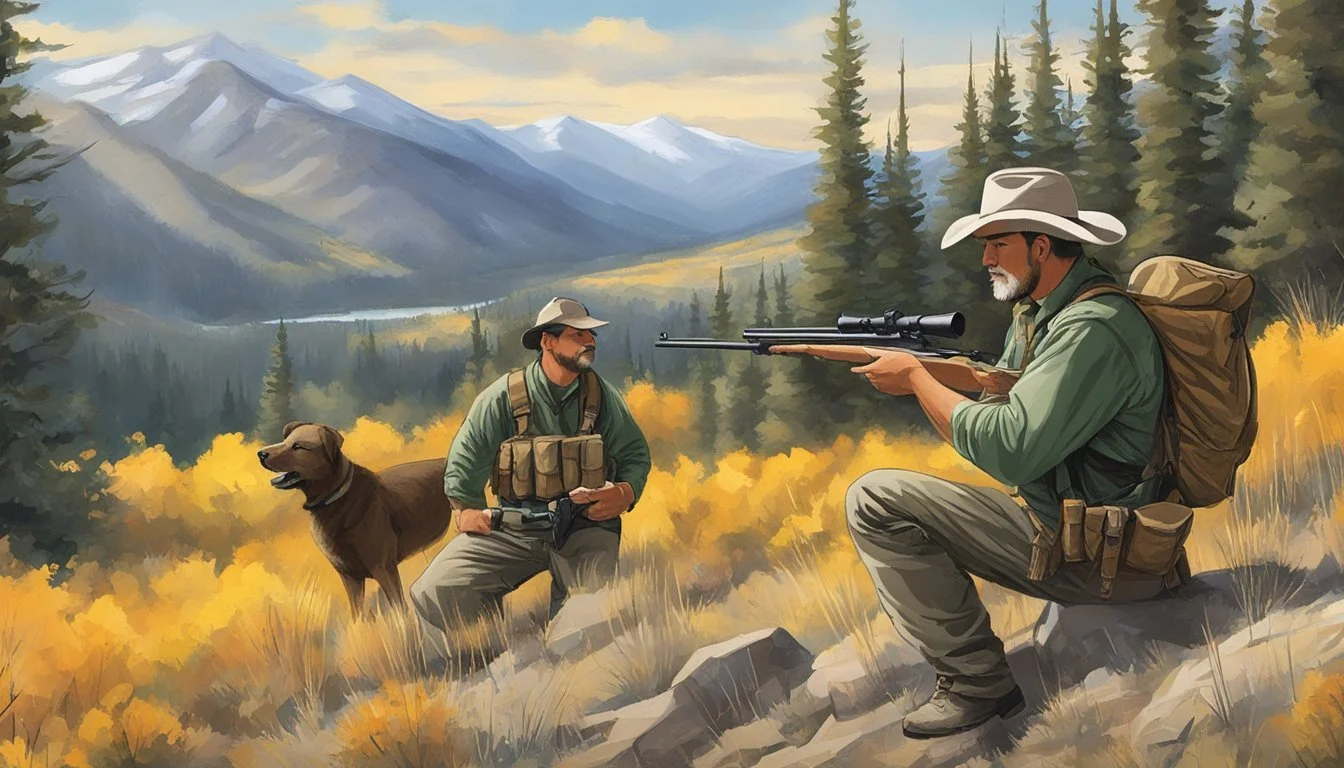Gun Laws in Idaho for Hunters
Understanding Regulations and Compliance
Idaho, often referred to as the Gem State, upholds a strong tradition of hunting and gun ownership, reflecting the values of freedom and individual responsibility. The state's gun laws are built around these principles, providing residents with the ability to exercise their Second Amendment rights. Hunters in Idaho must comply with specific state regulations designed to balance their freedoms with public safety. These regulations include requirements for the type of firearms permissible for hunting, and in some circumstances, the necessity of accompanying permits.
The state permits individuals, including minors under certain conditions, to possess firearms for hunting in Idaho's expansive fields and forests. Laws concerning hunting ensure that the use of weapons like shotguns, rifles, and handguns is regulated in a way that respects both the sport and the well-being of its natural resources. The nuances of the law provide guidance on carrying concealed weapons, where individuals seeking to carry a concealed handgun in Idaho may require a permit, depending on the type of carry.
Idaho's approach to firearms legislation exhibits a unique blend of respect for individual liberty and an understanding of the communal need for safety and regulation. Residents and visitors intending to engage in hunting activities must familiarize themselves with these laws to ensure they operate within the legal bounds set by the state. Knowledge of the restrictions on the types of firearms used and the areas where hunting is permitted is essential for compliance with Idaho's gun laws.
Gun Ownership Requirements
In Idaho, prospective hunters must navigate several regulations regarding gun ownership, including age restrictions, background checks, and hunter education requirements, to ensure lawful and responsible hunting.
Age Restrictions
Rifle and Archery:
An individual must be at least 18 years of age to purchase a rifle in Idaho.
Minors under 18 may use rifles and archery equipment for hunting when supervised by an adult.
Handguns:
The minimum age to purchase a handgun is 21 years.
Background Checks and Waiting Periods
Federal Dealers:
Background checks are mandatory for firearms purchases from federally licensed dealers.
No waiting period is required post-completion of the background check in Idaho.
Private Sales:
No background checks or waiting periods are required for private firearms transactions.
Hunter Education Certification
Mandatory Hunter Education: Any person born on or after January 1, 1975, must successfully complete a hunter education course to purchase a hunting license.
Types of Courses:
Traditional, instructor-led hunter education course.
Online hunter safety course, followed by an instructor-led field day.
Course Component Requirement Hunter Education Course Required for those born after January 1, 1975 Field Day Required for online course completions Residency No restrictions; both residents and non-residents may take the course
It is important for individuals to obtain the necessary training through a hunter education course to learn about safe firearm handling and responsible hunting practices. This requirement applies irrespective of the method used to hunt, whether with firearms or archery equipment.
Hunting License Information
To hunt in Idaho, individuals need to obtain the appropriate hunting license, tags, and possibly permits. These requirements are set forth by the Idaho Department of Fish and Game and adhere to specific regulations intended for wildlife conservation and hunter safety.
Resident vs. Non-Resident Permits
Resident Permits
Individuals considered residents of Idaho have access to hunting licenses, tags, and permits at a cost distinct from those offered to non-residents.
Residents must provide proof of residency to qualify for the resident license rates.
Non-Resident Permits
Non-residents must purchase hunting licenses, tags, and permits at rates higher than those for residents.
The availability of certain tags, particularly for controlled hunts, may be limited for non-resident hunters.
Required Documentation
For All Hunters
Every hunter must possess a valid hunting license.
Specialty tags or permits may be required for specific species.
Hunter Education Certificate
Hunters born on or after January 1, 1975, must furnish a hunter education certificate to purchase a license.
An exemption applies to those who demonstrate they have previously held a hunting license or have a certified hunter education certificate from Idaho or another state.
Carrying Firearms
In Idaho, hunters and residents can carry firearms openly or concealed with specific regulations in place for both. It is crucial to understand these guidelines to ensure compliance with state laws.
Open Carry Laws
Idaho allows the open carry of firearms without the need for a carry permit. Individuals can openly carry firearms in most public areas; however, there are restrictions near schools or other designated locations. The state does not impose limitations on the type of firearms that can be openly carried.
Concealed Carry Regulations
Idaho is a constitutional carry state, meaning that individuals over 18 may carry concealed weapons without a concealed carry permit; however, they do have the option to obtain a concealed weapons license (CWL). Obtaining a CWL can enhance reciprocity with other states, allowing Idahoans to carry concealed weapons legally across state lines where Idaho permits are recognized.
Age Requirement: Must be over 18 for Idahoans, 21 for non-residents.
Training: Some form of firearms safety training is required.
Background Check: A requirement for obtaining a CWL.
Idaho honors concealed carry permits from states that return the favor (reciprocity).
Transporting Weapons in Vehicles
For those transporting firearms in a vehicle, the state mandates that firearms be carried safely and in compliance with the law.
Open Carry in Vehicle: Legal without any permit.
Concealed Carry in Vehicle: Legal for individuals over 18 without the need for a permit.
CWL Holders: Those with a concealed weapons license can carry a concealed firearm in a vehicle.
It's important for individuals to familiarize themselves with local ordinances as they may have additional requirements or restrictions on transporting firearms in vehicles.
Hunting Laws and Seasons
In Idaho, the regulations governing hunting laws and seasons are set to ensure sustainable wildlife populations and provide fair chase standards. Hunters are required to familiarize themselves with specific rules for the game they pursue, including weapon restrictions and season dates.
General Deer Hunting Regulations
For deer hunting in Idaho, general seasons typically offer a wide range of opportunities across various zones. Big game animals such as deer are subject to:
Archery season: Specific dates are set, during which only archery equipment is allowed.
General deer season: Open to hunters with standard equipment, following specific dates for different zones.
Controlled deer hunt seasons: These are limited entry hunts that require applying for a tag through a lottery system.
Weapon restrictions include prohibiting the use of fully automatic firearms and shotguns with shot sizes smaller than #00 buck.
Duck Hunting Seasons
Duck (What wine goes well with duck?) hunting is governed by both federal and state regulations due to migratory patterns:
Statewide duck: The season typically includes split periods to maximize hunting throughout the migratory cycle.
Scaup season: Limited dates within the general duck season specific for scaup species.
Possession limit: Defined as the total number of ducks a hunter is legally allowed to possess.
All hunters must adhere to these frameworks and ensure they hold the required hunting licenses.
Gray Wolf Hunting Rules
Gray wolf hunting has specific requirements:
Season dates: Set annually, these dates dictate when wolves can be legally hunted.
Hunting licenses: Mandatory for anyone pursuing gray wolves, with different licenses for residents and nonresidents.
Tagging: Successful hunters must report their harvest and have wolves tagged according to Idaho hunting laws.
These rules aim to manage wolf populations while providing hunting opportunities.
Firearm Restrictions and Regulations
In Idaho, hunter firearms are subject to specific restrictions to ensure safety and fair chase. Regulations governing the types of weapons and ammunition permissible for hunting are strictly enforced.
Prohibited Firearms and Weapons
Fully Automatic Firearms: It is illegal for hunters to use fully automatic firearms for hunting in Idaho.
Electronic Devices: Hunting with firearms that have electronic devices designed to increase accuracy, such as laser sights, is prohibited for fair chase considerations.
Ammunition and Equipment Regulations
Ammunition: Only legally obtained ammunition may be used for hunting. The use of armor-piercing or tracer ammunition is prohibited.
Rifles and Shotguns: Idaho permits the use of rifles and shotguns for hunting, but they must comply with caliber or gauge restrictions appropriate for the game being hunted.
Wildlife Conservation and Management
Effective wildlife conservation and management are crucial aspects of Idaho's hunting regulations, aiming to maintain ecological balance and support sustainable hunting practices.
Big Game Hunting Fees and Tags
In Idaho, hunters are required to procure appropriate tags and pay fees designated for big game hunting. These funds are directly contributed to conservation and wildlife management efforts. For instance:
Deer and Elk: Tags must be purchased for each animal, and the fees vary depending on whether the hunter is a resident or non-resident.
Mountain Lions and Bears: These also require tags; fees help fund studies and conservation measures for these species.
The tags serve not only as legal documents but also as a means to monitor and manage animal populations.
Hunting in Conservation Areas
When hunting in conservation areas, it is important that hunters respect the regulations set by Idaho Fish and Game. These areas are established to protect wildlife habitats and ensure the continuation of various species. Key points to remember include:
Hunting Seasons: Adherence to specific dates for hunting certain species ensures sustainable population levels.
Protected Species: Some areas may have provisions for the protection of specific species, where hunting could be restricted or prohibited.
Hunters should always check with the government buildings in charge of wildlife or consult Idaho Law before heading to these areas. The careful management in these zones contributes to maintaining biodiversity and the health of ecosystems.
Legal Considerations and Penalties
In Idaho, hunters and gun owners must navigate specific legalities around trespass and self-defense. These legal considerations carry potential penalties for non-compliance, crucial for both property rights and public safety.
Trespassed Hunting Legislation
When hunting in Idaho, individuals must be acutely aware of private property boundaries. Trespassing to hunt without permission is illegal and can result in criminal charges. To lawfully hunt on private land, hunters must obtain permission, either verbally or in writing. The state's legislation insists on respecting private land to maintain good relationships between landowners and the hunting community.
Penalties: Trespassing for unauthorized hunting could lead to fines, license revocation, and potential imprisonment, emphasizing the importance of proper navigation and communication.
Use of Firearms in Self-Defense
The use of firearms in self-defense in Idaho is permitted under certain circumstances. Deadly force is justifiable if an individual reasonably believes it is necessary to prevent great bodily harm or death. However, the state's laws prohibit the use of deadly force in self-defense in certain locations, particularly schools and establishments that serve alcohol.
Justifications: The presence of a serious threat, absence of safe retreat opportunities, and the reasonable perception of danger can be cited to justify the use of a firearm in self-defense.
Limitations: Deadly force is not justified in circumstances where the perceived threat can be safely avoided or when the use of force exceeds what is deemed reasonable for the situation.
Firearms legislation in Idaho does not classify any specific types of firearms as "assault weapons," and there are no bans on their possession. Still, gun owners are expected to exercise the utmost caution and circumspection, especially where public safety is concerned.
Hunting Culture and Education
Idaho's hunting culture is steeped in a commitment to safety and education for both bowhunters and trappers. The state mandates comprehensive education courses to ensure that all hunters and trappers have the necessary skills and knowledge to engage in these activities responsibly.
Bowhunter and Trapper Education
The Idaho Department of Fish and Game requires hunters to complete a hunter education course if they were born on or after January 1, 1975, before they can purchase a hunting license. This education is crucial in promoting safe hunting practices. The Bowhunter Education program specifically focuses on the unique challenges of bowhunting such as:
Archery safety
Ethical shooting practices
Wildlife conservation
For trappers, the state provides education on the use of snare cables and diverters, emphasizing humane and ethical trapping methods. This includes understanding the regulations related to trapping and the importance of maintaining a positive public image of the trapping community.
Public Attitudes Towards Hunting
In Idaho, the public's attitude towards hunting is generally positive and seen as an integral part of wildlife management and conservation. Education plays a key role in:
Fostering respect for the law and ethical behavior among hunters
Ensuring the safety of hunters and non-hunters alike
Hunter education contributes to a culture of respect for wildlife and responsible stewardship of natural resources, reflecting the state's passion for outdoor traditions.
Safety and Ethical Practices
Safety and ethical practices are critical to lowering gun death rates and promoting responsible gun ownership among Idaho hunters. Adherence to proper weapon handling and storage protocols, along with a deep understanding of ethical hunting guidelines, is paramount for a secure and respectful hunting experience.
Safe Weapon Handling and Storage
Safe weapon handling starts with the fundamental principle of treating every firearm as if it's loaded. Hunters must ensure that the muzzle is pointed in a safe direction at all times and that their finger is off the trigger until ready to shoot. Proper storage is equally important for safety. Firearms should be stored unloaded in a locked cabinet, safe, or storage case. Ammunition should be stored separately to prevent unauthorized access.
For secure transport, firearms must be kept unloaded and cased. Additionally, completing a hunter education course is mandatory for hunters in Idaho, which emphasizes both safe handling and responsible storage practices to avoid accidents and theft.
Ethical Hunting Guidelines
Ethical hunting guidelines dictate that hunters respect the laws and the wildlife they pursue. This involves hunting only within the designated season and adhering to the limits of the game. Hunters should also strive for a quick and humane harvest, taking shots only when there is a clear, clean, and ethical opportunity.
An ethical hunter exhibits respect for the land and other hunters by obtaining permission before hunting on private land and by not interfering with other people's hunts. They should carry out all activities with the utmost consideration for the environment and local ecosystems.

